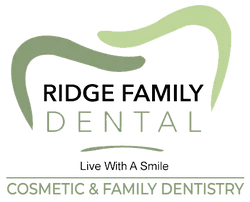Teeth bonding is a simple yet effective cosmetic dentistry procedure. It can transform your teeth and leave you beaming with joy. If you want to enhance your smile and regain your confidence, talk to Dr. Sverdlov about teeth bonding. We know the importance of your smile. Teeth bonding is one of the many ways that we can help you achieve the perfect set of pearly whites.

What is Tooth Bonding?
Teeth bonding, also known as dental bonding, is a cosmetic dentistry procedure that involves a tooth-colored resin. Your dentist will apply the resin to the surface of your teeth. This versatile treatment can address many dental concerns, including:
- Repairing Chipped or Cracked Teeth: Bonding is an excellent solution for restoring the look of teeth that have suffered from minor damage. For example, bonding is great for patients with chips or cracks in their enamel.
- Closing Gaps: If you have small gaps between your teeth, we can use bonding to fill in these spaces. Therefore, we can provide a more uniform and aesthetically pleasing smile.
- Improving Tooth Shape and Size: Bonding allows your dentist to reshape and resize your teeth. This will create a more harmonious and balanced smile.
- Covering Stains: You may have stubborn stains and discoloration that do not respond to chemical teeth whitening treatments. Alternatively, you can use bonding to camouflage and conceal stains.
With teeth bonding, you can achieve a more attractive and symmetrical smile. Together, we can help you address mild imperfections with your smile. We can use bonding for various cosmetic issues. This provides you with a versatile solution for those seeking smile improvements.
Unlike some other cosmetic procedures, tooth bonding is a non-invasive treatment that requires little to no enamel removal. Finally, you can say goodbye to self-consciousness and say hello to the newfound confidence with a beautiful smile.
Frequently Asked Questions about Teeth Bonding
Before you get bonding, you should make sure you have all your questions answered.
Is Teeth Bonding Painful?
Not at all! Teeth bonding is a minimally invasive procedure that typically does not require anesthesia. The process is painless. You can expect to leave our office with a renewed smile in just one visit.
How Long Does Teeth Bonding Last?
The lifespan of bonding results varies depending on many different factors. For example, your oral hygiene and eating habits can alter the color of your smile. You can generally expect your results to last several years with proper care. Therefore, you will need to continue routine dental check-ups and cleanings. This will help you maintain the longevity of your bonded teeth.
Can Bonded Teeth Stain?
The resin material in bonding is resistant to staining. However, it is crucial to avoid excessive consumption of foods and drinks that can cause staining. For example, red wine, coffee, and tobacco can all contribute to staining. Regular brushing and dental cleanings can help prevent long-term staining. Additionally, your dentist can identify when you may need further treatment.
Why Choose Bonding Over Other Cosmetic Options?
Teeth bonding offers several advantages. As a result, it is a very popular choice for many patients.
- Cost-Effective: Compared to other cosmetic procedures, teeth bonding is a much more budget-friendly option.
- Quick and Painless: Our dental team can complete your bonding procedure in a single visit. Due to the process, it is virtually painless.
- Conservative Approach: Bonding preserves more of your natural tooth structure compared to other options like veneers.
